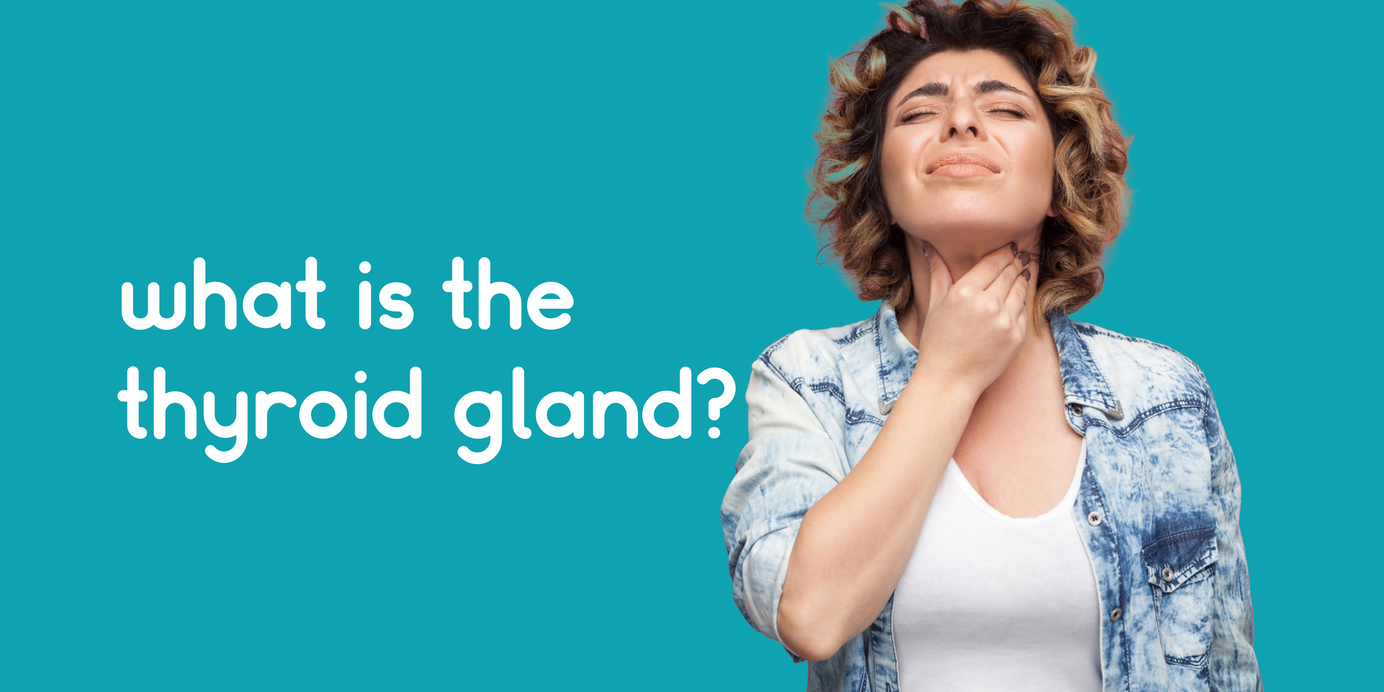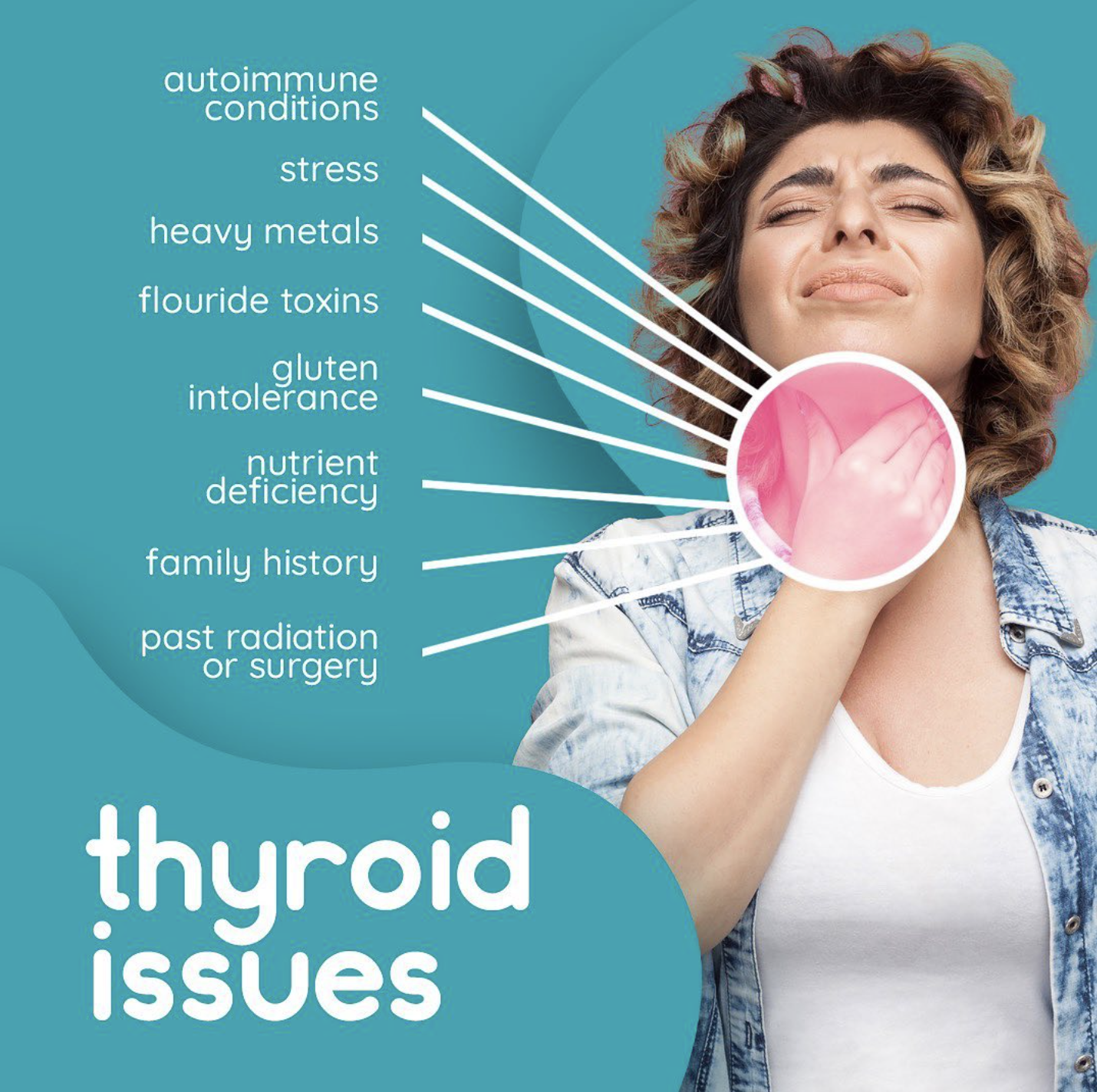
What is the Thyroid Gland?
While the thyroid works around the clock to keep our bodies functioning properly, certain conditions can affect the thyroid’s hormone production. This can lead to serious health issues.
Table of Contents
Most people aren’t aware of their thyroid as they go about their everyday activities. That’s good. It means that the gland is performing its normal functions of aiding metabolism and helping to control body temperature.
When we do experience symptoms of a thyroid condition, we may not be aware of the cause. Read on for more information about this important gland, what it does, what causes thyroid gland conditions, and what symptoms to look for.
What is the Thyroid
If you don’t know where your thyroid gland is located in your body, it’s in your neck. It sits low in the front right under your voice box and above your breastbone. The thyroid is butterfly-shaped with two wide lobes connected by a bridge in the middle.
The thyroid is a hormonal gland. It secretes hormones to help your body turn food into energy, to help our bodies grow and develop, and to help us maintain our body temperature. These hormones also help us concentrate better and give us quicker reflexes. For pregnant women, the thyroid gland works even harder to produce hormones that help their babies develop in the womb until their thyroids start to work on their own.
The three thyroid hormones are:
- Triiodothyronine (T3)
- Tetraiodothyronine (T4)
- Calcitonin
While the thyroid works around the clock to keep our bodies functioning properly, certain conditions can affect the thyroid’s hormone production. This can lead to serious health issues.

4 Main Thyroid Conditions
Four main conditions affect the health of the thyroid gland. These conditions are caused when the thyroid produces either too much (hyperthyroidism) or not enough hormones (hypothyroidism). The most common cause of thyroid conditions is an iodine deficiency. Knowing the symptoms and possible treatments of these thyroid conditions are important to maintaining good gland health.
1. Hashimoto's Thyroiditis
Also called Hashimoto's disease, or simply thyroiditis, is a condition in which the thyroid is attacked by the body’s immune system. The inflammation caused by thyroiditis causes the thyroid gland to underproduce hormones. The disease primarily affects women in middle age but men and women of all ages can be affected.
Tests & Treatment
Doctors use two types of blood tests to detect Hashimoto's disease. A hormone test measures the number of hormones produced by both the thyroid and the pituitary gland. An antibody test is used to determine the presence of abnormal antibodies. Thyroiditis is treated with hormone therapy which uses a daily dose of synthetic hormone to regulate the gland.
Symptoms
Some symptoms of Hashimoto’s Disease are:
- Fatigue
- Weight gain
- Depression and memory loss
- Joint pain
- Dry skin and brittle nails
- Pale skin and puffy face
- Hair loss
- Enlarged tongue
2. Grave’s Disease
Grave’s disease affects the body's immune system. It’s the most common cause of hyperthyroidism which is when the thyroid is overstimulated and produces too many hormones. About one in every 200 people are affected by Grave’s disease with women affected at a higher rate than men. Grave’s disease is caused by genetic as well as environmental factors which may include viral infections, a reaction to medications, and too much or not enough iodine.
Tests & Treatment
If you believe you have the symptoms of Grave’s disease your doctor may perform a physical exam and may also recommend testing. These tests could include an ultrasound or imaging test, blood test, or they may test the iodine levels in your thyroid using a radioactive iodine uptake test.
Symptoms
Some symptoms of Grave’s disease include:
- Fatigue
- Anxiety and irritability
- Tremors in the hands or fingers
- Heat sensitivity
- Weight loss
- Enlarged thyroid gland (goiter)
- Heart palpitations
- Difficulty sleeping
3. Goiter
Goiter is an enlarged thyroid gland. This can be caused by either hypothyroidism or hyperthyroidism. The most common cause of goiters is an iodine deficiency as the thyroid uses the iodine found in blood to produce hormones.
Tests & Treatment
A goiter is detected during a physical examination. Tests will be performed to determine the cause of the goiter which could either be Grave’s disease or Hashimoto’s thyroiditis (see above). The treatment of a goiter is determined by the cause. If the goiter is large enough to constrict breathing, surgical removal may be necessary.
Symptoms
Goiter symptoms include:
- Swelling at the base of the neck
- Constricted throat
- Coughing and hoarseness
- Difficulty swallowing and breathing
4. Thyroid Nodules
Thyroid nodules are growths that form on the thyroid gland. They are formed of thyroid cells. In most cases, these nodules are not a serious health concern. Only in rare instances are they cancerous. When larger lumps develop they can impact normal breathing and swallowing.
Tests & Treatment
Thyroid nodules are detected by a doctor during a physical examination. Treatment for thyroid nodules will depend on the type of thyroid nodule that has formed. If the nodule is affecting normal thyroid functioning, hormone therapy may be recommended. Surgery is also an option when nodules make breathing and swallowing difficult.
Symptoms
In most cases, thyroid nodules do not produce recognizable symptoms. When they do become large enough, however, the swelling may be seen or felt. In this case, the nodules can cause shortness of breath or swallowing difficulties.
If a thyroid nodule leads to the release of additional hormones this can cause hyperthyroidism with symptoms that include:
- Weight loss
- Tremors
- Nervousness
- Irregular heartbeat
- Increased sweating
provin.me | blog Newsletter
Join the newsletter to receive the latest updates in your inbox.




